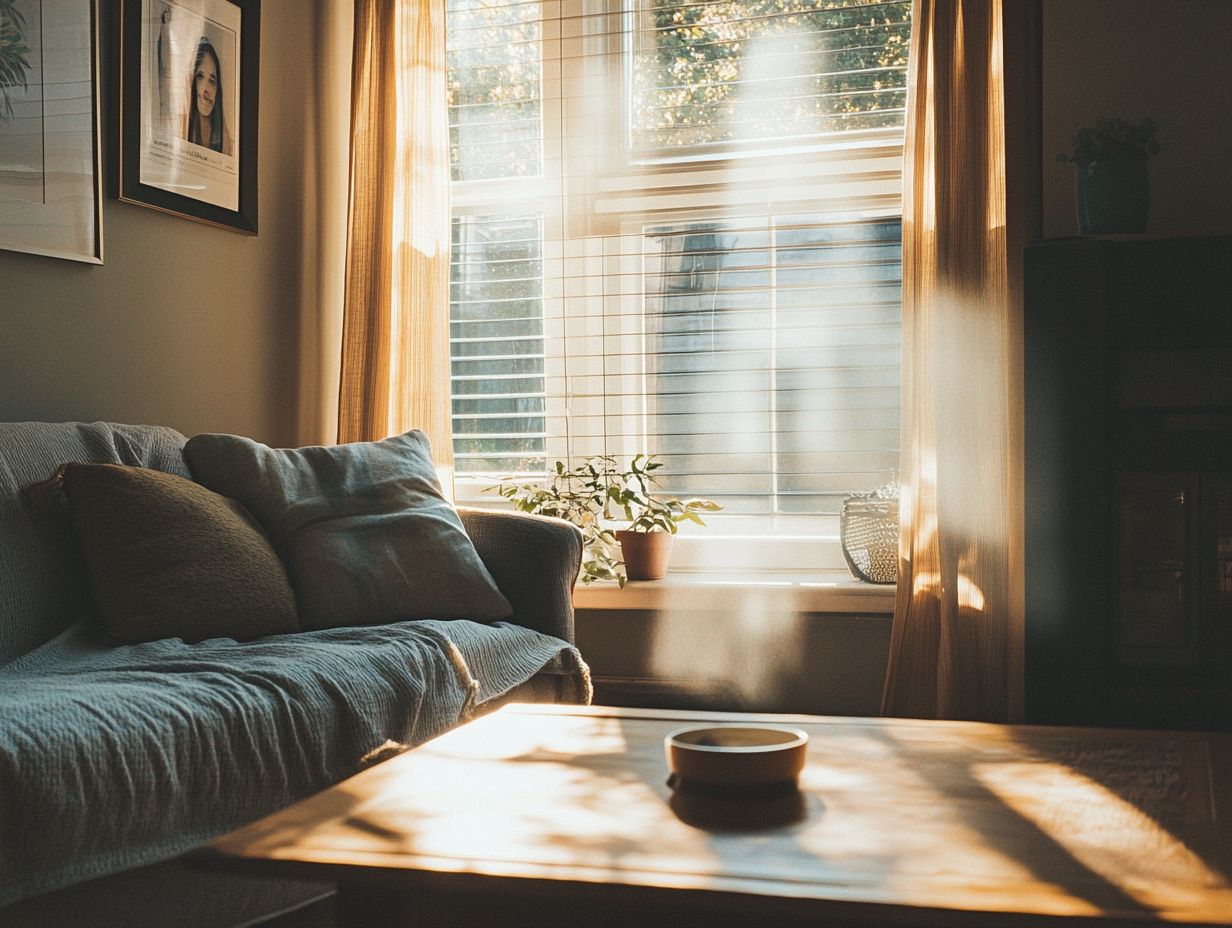How Much Home Insurance Coverage Do You Need?
Selecting the right home insurance coverage is crucial for safeguarding your most treasured asset your home.
With many different policies and options at your disposal, it s easy to feel overwhelmed by what home insurance actually covers. Understanding how much protection you genuinely require can also be challenging. This article will guide you through the essential components of home insurance. It will examine the factors influencing your coverage needs and the various types of coverage available.
It will also spotlight extra options that protect you from specific risks, ensuring a thorough approach to safeguarding both your home and your belongings.
Contents
Key Takeaways:

Assess your assets and risks to determine the appropriate amount of coverage for your home insurance. Consider additional coverage options such as flood or earthquake insurance to fully protect your home and belongings. Understanding why you need home insurance is crucial, as it provides protection for your dwelling, personal property, and liability. It is important to have adequate coverage in case of unexpected events.
Understanding Home Insurance Coverage
Understanding home insurance coverage is essential for you as a homeowner. This coverage offers a range of protections aimed at shielding you from financial loss due to risks like fire, theft, or natural disasters. To better protect your investment, it’s important to learn how to choose the right home insurance.
Homeowners insurance generally includes various policies that cover your dwelling, personal property, and liability. This ensures both your home and your belongings are well-protected.
Understanding your coverage limits is vital; it helps you avoid financial pitfalls when the unexpected happens! These limits determine the maximum payout in the event of an incident. Additionally, knowing how insurance companies and agents tailor policies to fit your unique mortgage requirements empowers you to make informed decisions about your coverage.
What is Home Insurance?
Home insurance, often referred to as homeowners insurance, is a tailored insurance policy designed to provide you with financial protection against potential losses stemming from property damage, theft, and liability claims.
This insurance typically includes a range of coverage options aimed at safeguarding your investment in your home.
For example, dwelling coverage protects the physical structure of your house from hazards like fire, storms, and vandalism. This ensures that you can undertake repairs or rebuild without facing an overwhelming financial burden.
Personal property coverage shields your belongings within the home think furniture and electronics in the unfortunate event of theft or damage.
Another essential aspect is liability coverage, which protects you from financial fallout due to legal claims arising from injuries sustained by others on your property.
This comprehensive coverage underscores the peace of mind that such a policy offers, allowing you to focus on what truly matters.
Determining Your Coverage Needs

Determining your coverage needs requires a careful evaluation of several factors that influence the total amount of homeowners insurance necessary to safeguard both your investment and personal belongings, including understanding how much home insurance you need.
Each aspect plays a crucial role in ensuring you are fully protected.
Factors to Consider
When determining the right homeowners insurance coverage, several critical factors warrant your attention to ensure you are adequately protected against risks and unforeseen events, including understanding the requirements for home insurance coverage.
- First, consider the age of your home. Older structures may have vulnerabilities stemming from outdated materials or systems.
- The type of construction materials you choose be it brick, wood, or a composite also plays a pivotal role in assessing fire resistance and overall durability.
- Don t overlook special features like swimming pools, intricate landscaping, or unique architectural details. These elements require tailored coverage to suit your needs.
- Additionally, local building codes can impose specific requirements that not only influence how you might remodel your home but also affect your insurance premiums.
- An inflation guard is essential for keeping your coverage levels in sync with rising rebuilding costs.
- Moreover, being aware of related exclusions is crucial to avoid any unintended gaps in your coverage that could leave you financially vulnerable.
After reading this article, consider reviewing your current insurance policy or contacting an agent to ensure you have the right coverage in place.
Types of Home Insurance Coverage
You should know several key types of home insurance coverage that are essential for every homeowner. This includes dwelling coverage, personal property coverage, and liability coverage. Each offers distinct benefits and layers of protection for your valuable assets and peace of mind.
Understanding these coverages is essential for safeguarding what matters most to you!
Dwelling Coverage

Dwelling coverage is a vital aspect of homeowners insurance that protects your home s structure, including the expenses associated with rebuilding it in the event of damage or destruction. This coverage typically includes the walls, roof, floors, and built-in appliances and fixtures. If you encounter unfortunate circumstances like a fire or severe weather, you can recover financially.
To determine the right dwelling amount, it’s crucial to consider local construction costs and building codes, which can vary widely from one region to another. Factors such as materials used, the size of your home, and any unique architectural features will play a role in determining the overall rebuilding cost.
Trends in labor pricing also influence expenses tied to reconstructing a home. Don t wait! Regularly check your dwelling coverage to protect your investment effectively.
Personal Property Coverage
Personal property coverage is a cornerstone of homeowners insurance, safeguarding your belongings like furniture, electronics, and clothing from risks such as theft or damage.
However, simply having this coverage isn t sufficient. Maintaining an up-to-date home inventory is essential. This practice helps you keep track of what you own and simplifies the claims process, making it easier to substantiate losses with your insurance provider.
Understanding your coverage limits is crucial as many policies may not fully cover the value of extensive collections or high-value items.
The good news is that you can enhance your protection through endorsements. Endorsements are additional coverages that you can add to your policy. They ensure your most prized possessions are adequately protected, giving you peace of mind against unexpected events.
Liability Coverage
Liability coverage is an essential component of homeowners insurance that offers you financial protection against legal claims arising from injuries or damages on your property.
This coverage helps cover legal costs, medical expenses, and other related fees if someone pursues legal action against you. It s vital to understand the liability limits, as these limits determine the maximum payout your insurance will provide in the event of a claim.
Being fully aware of these limits can save you from unexpected out-of-pocket costs during a lawsuit, where legal fees can escalate rapidly and create significant financial strain.
With liability insurance in place, you can have peace of mind knowing it serves as a safety net, protecting you from potentially catastrophic financial losses stemming from claims or lawsuits.
Calculating the Right Amount of Coverage

Determining the appropriate level of homeowners insurance coverage is crucial for ensuring that both your dwelling and personal property receive comprehensive protection against various risks. For more details on this, check out how to evaluate your home insurance needs.
Assessing Your Assets and Risks
Assessing your assets and risks requires a careful check of your home, personal property, and potential liabilities to determine how to know if you have enough coverage for homeowners insurance. This process not only protects your invaluable possessions but also helps you uncover vulnerabilities that might not be immediately obvious.
By examining various aspects of your property such as structural integrity, safety measures, and personal valuables you can pinpoint areas that need attention. Regular evaluations are essential for adjusting your insurance premiums, enabling you to stay ahead of market fluctuations and ensuring that your financial protection accurately reflects the current value of your assets.
This proactive approach deepens your understanding of potential risks and fosters peace of mind in an ever-evolving landscape.
Additional Coverage Options
Along with standard homeowners insurance, you have access to a range of additional coverage options designed to safeguard your property from specific risks.
Consider enhancing your protection with:
- Flood insurance
- Earthquake insurance
Both options can provide crucial support in the face of unforeseen events.
Flood Insurance
Flood insurance is a specialized policy that offers you financial protection against damages caused by flooding. This event is typically not covered by standard homeowners insurance policies.
This type of insurance is essential for homeowners, renters, and business owners alike, especially if you reside in flood-prone areas.
It comes in various forms, covering everything from the building structure to personal belongings, and even additional living expenses if your property becomes temporarily uninhabitable.
In the unfortunate event of flood-related damage, knowing how to file a claim is crucial. The process generally involves documenting the damage, promptly notifying your insurance provider, and providing the necessary evidence.
Regional considerations significantly influence your flood risk, which can vary dramatically based on geographic location. Therefore, assessing local flood risk is vital for determining the appropriate level of coverage.
Consider these factors to be fully prepared for potential flooding, safeguarding both your property and your financial well-being.
Earthquake Insurance
Earthquake insurance is an essential coverage option for homeowners, especially if you live in seismic-prone areas. It offers financial protection against damages that can occur during an earthquake.
This specialized policy serves as a vital supplement to your standard homeowners insurance, which typically excludes earthquake-related damages. It covers various aspects, including the structure of your home, personal property, and additional living expenses if your home becomes uninhabitable due to quake damage.
Pay close attention to the specific features of these policies, including coverage limits, exclusions, and the claims process. Often, you’ll need to provide documentation of damages and costs when filing a claim.
By understanding these details, you can effectively address potential gaps in coverage, giving you peace of mind when the ground starts to tremble.
Frequently Asked Questions
What factors should I consider when determining how much home insurance I need? When determining how much home insurance coverage you need, consider factors such as the value of your home, the cost to rebuild it, the value of your personal belongings, and potential liability risks.
How can I estimate the value of my home for home insurance purposes?
To estimate your home’s value for insurance, use resources such as an online home value calculator, consult with a real estate agent, or hire a professional appraiser.
What is replacement cost coverage and how does it differ from actual cash value coverage?
Replacement cost coverage pays to replace your damaged or destroyed home or belongings with new items of similar quality. Actual cash value coverage takes depreciation into account, meaning it pays you the current value of your damaged or destroyed property.
Should I consider purchasing additional coverage for natural disasters or other specific risks?
If you live in an area prone to natural disasters such as hurricanes or earthquakes, or if you have valuable items that may not be fully covered by your standard policy, it may be beneficial to purchase additional coverage for these specific risks.
Can I adjust my home insurance coverage as needed? Yes, you can adjust your home insurance coverage as needed. It is recommended to review your policy at least once a year and make any necessary updates, including understanding how to choose the right coverage for your home, to ensure you have adequate protection.
What should I do if I am unsure about how much home insurance coverage I need? If you are unsure about the amount of coverage you need, consult with a reputable insurance agent who can assess your individual needs and guide you on how to determine adequate coverage for home insurance.





